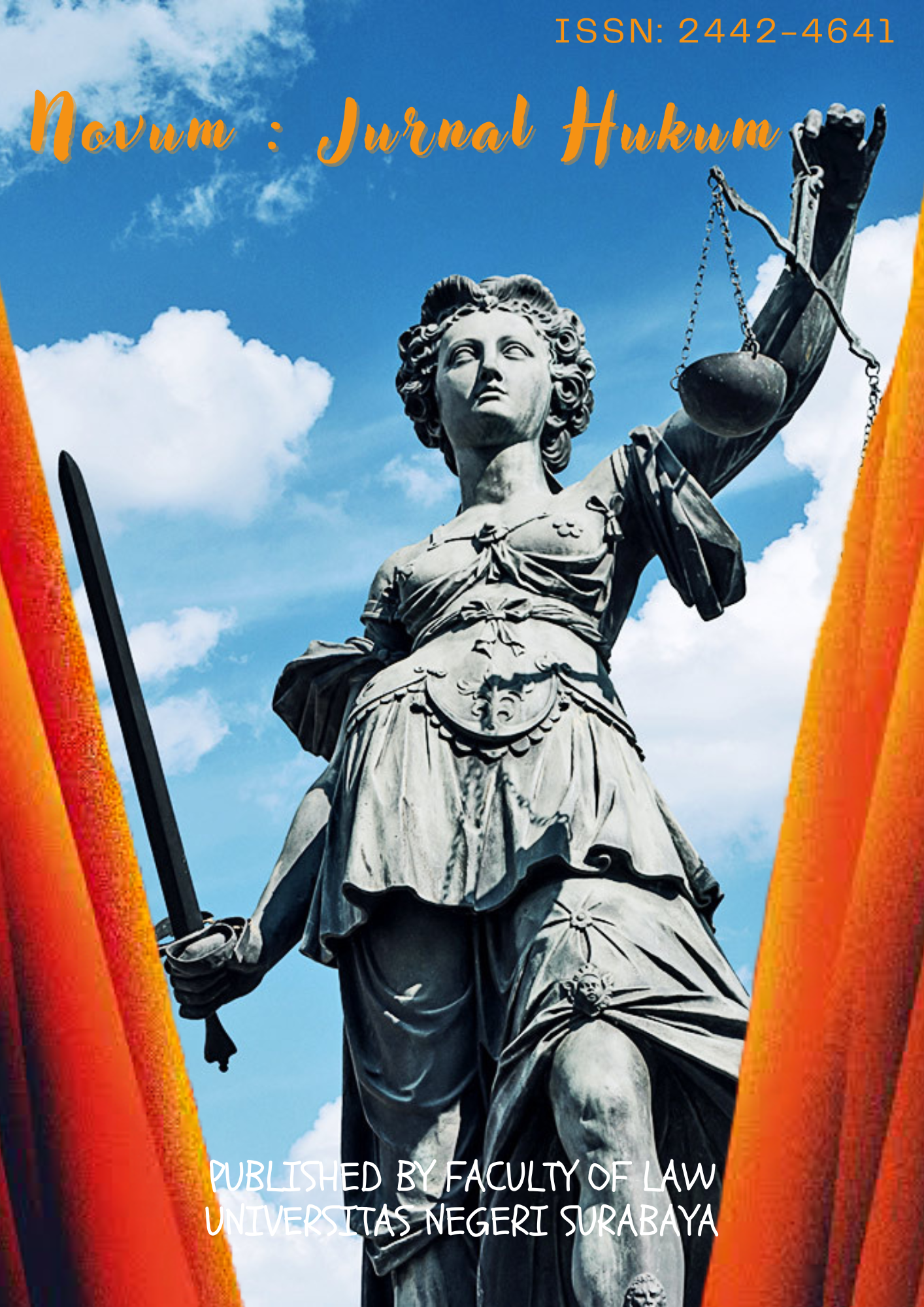The Concept of Professional Waqf in Indonesian Law
DOI:
https://doi.org/10.2674/novum.v3i3.56414Abstract
Waqf has significant potential to improve public welfare in Indonesia and continues to evolve in line with societal changes. As an ijtihadi concept, waqf is open to contemporary interpretations, one of which is profession waqf—introduced by the Indonesian Waqf Board (BWI). Profession waqf refers to the endowment of one’s physical or non-physical expertise for the benefit of the public, in accordance with Islamic law. This study aims to explore the concept and subject of profession waqf in Indonesia using normative legal research with statutory and conceptual approaches. Legal materials are analyzed prescriptively to address the core issues. The research concludes that profession waqf involves dedicating an individual’s skills or professional services for public good and must be carried out in line with sharia principles. The actors involved include: (1) the profession wakif, who endows their expertise; (2) the nazhir, who manages and develops the waqf; and (3) the mauquf alaih, the beneficiaries who may be specifically named or generally intended in the waqf pledge. This form of waqf allows professionals to contribute meaningfully to society, not just through material wealth, but through their knowledge and skills.
Downloads
Downloads
Published
Issue
Section
License
Copyright (c) 2023 Ahmad Sofyan Mustafa, Nurul Hikmah

This work is licensed under a Creative Commons Attribution-NonCommercial-ShareAlike 4.0 International License.
 Abstract views: 237
,
Abstract views: 237
, PDF Downloads: 11
PDF Downloads: 11



